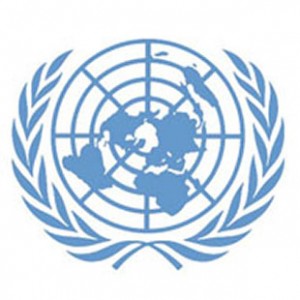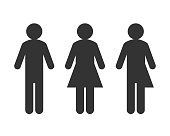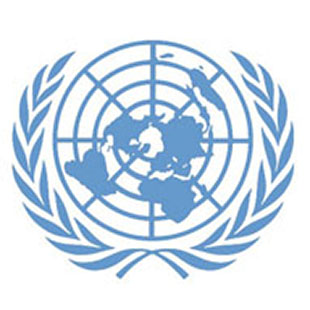 The project
The project
Human rights are a crucial part of our moral and political vocabulary. Among other things, they give expression to the powerful idea that every human being – regardless of race, ethnicity, sex, language, religion, political opinion, sexual orientation, nationality, and origin – is deserving of moral concern, and can make a range of demands on their state, the international community, and other persons.
But human rights also face a variety of challenging philosophical, political, and legal problems that merit careful examination. This research project will look into a number of such questions, including the following:
- The Nature and Grounds of Human Rights: What are human rights, what is their “nature,” and what makes them distinct from other varieties of rights (e.g., constitutional rights, civil rights, animal rights, etc.)? What sort of evidence can we use to arrive at an answer to this question? And what is it that makes human rights worthy of respect? What, if anything, “grounds” their normative existence? ‘And do the grounds of human rights, for example, persons‘ interests or inviolable moral status, also ground further obligations to protect and aid right-holders to secure human rights?
- Duties to People Suffering Severe Poverty: Although the human right to basic necessities has been widely internationally ratified, there has been very little agreement about what obligations it entails. For instance, does the human right to basic necessities entail both negative and positive obligations towards compatriots and foreigners? And does the responsibility for fulfilling such obligations ultimately lie with the state, or with every agent who is able to do so?
- Human Rights and the Individual: Are human rights grounded primarily by what they do for the right-holder (e.g., ‘basic’ human rights), or by what they do for the wider community independently of their benefits to the right-holder (e.g. most property rights and other useful created systems of rights)? What sort of relationship do rights posit between duty-bearer and right-holder?
-
The Challenges of Diversity: Human rights present themselves as standards that all societies are required to endorse. But the societies we live in differ in dramatic ways: culturally, politically, religiously, ideologically, geographically, technologically, economically, etc. Unsurprisingly, these differences generate special challenges for the human rights movement. Can universal human rights exist in a culturally diverse world? And even if such rights do exist, how can we possibly come to know them, given the influence of culture on our judgment? And how might we address deep cross-cultural disagreements on a variety of specific issues: women’s rights, the right to freedom of speech, the right to democracy, and the ethical implications of climate change?
-
Human Rights and Refugee Displacement: The vast majority of the world’s refugees are subjected to extensive human rights violations both in the causes of their displacement and whilst they are displaced. How does this fact affect the obligations that the international community of states have towards such refugees? And how can ethical responses to refugee displacement be informed by human rights concerns?
People
- Elizabeth Ashford (St Andrews Philosophy)
- Bradley Hillier-Smith (St Andrews Philosophy)
- Adam Etinson (St Andrews Philosophy)
- Rowan Cruft (Stirling Philosophy)
- Jens Timmermann (St Andrews Philosophy)
- Patrick Hayden (St Andrews International Relations)
- Tony Lang (St Andrews International Relations)
- Theron Pummer (St Andrews Philosophy)
Recent Developments and Plans
Conferences:
- Human Rights at 70: Shrinking or Growing Conference – 10th -11th May 2018 – joint conference by the Centre for Ethics Philosophy and Public Affairs and the School of International Relations, University of St Andrews.
- “Assigning Roles to Human Rights” James W. Nickel (Miami Law), 26 September 2016, with comments by Adam Etinson.
-
Adam Etinson organizes a yearly panel at the American Philosophical Association under the “Society for the Philosophy of Human Rights”, which he co-directs with Robert Simpson (Philosophy, Monash University) and Pablo Gilabert (Philosophy, Concordia University).
Works in Progress:
- Bradley Hillier-Smith: ‘Rights, Duties, and Inviolability’
- Bradley Hillier-Smith: ‘Duties to Victims of Human Rights Violations’
- Jens Timmermann is working on the question of what is prior, rights or duties. He has written some preliminary remarks on this in “Kant and the Second-Person Standpoint” in Grazer Philosophische Studien, Volume 90, Issue 1, pages 131-147.
Recent Publications:
- Adam Etinson, “The Lure of Minimalism” in The Routledge Handbook of the Philosophy of Human Rights eds. Jesse Tomalty & Kerri Woods (Routledge, Forthcoming).
- Adam Etinson: “What’s So Special About Human Dignity” (Philosophy and Public Affairs Volume 48 Issue 4, 2020)
- Rowan Cruft: Human Rights, Ownership and the Individual (OUP 2019)
- Adam Etinson (ed.): Human Rights: Moral or Political? (OUP 2018)
- Rowan Cruft (ed. with S. M. Liao and M. Renzo): Philosophical Foundations of Human Rights (OUP 2015)
- Patrick Hayden: “The Human Right to Health and the Challenge of Poverty”, in Chris Brown and Robyn Eckersley (eds), The Oxford Handbook of International Political Theory (Oxford University Press, 2018)
- Patrick Hayden: “The Ethical Terrain of International Human Rights: From Invoking Dignity to Practicing Recognition”, in Brent Steele and Eric Heinze (eds), Routledge Handbook on Ethics and International Relations (Routledge, 2018)
-

An open letter to JK Rowling’s blog post on Sex and Gender
Sophie-Grace Chappell recently published this piece on Crooked Timber.
-

How high to dream?
Adam Etinson in The Times Literary Supplement on the rise of human rights amid the collapse of socialist ideals.
-

Adam Etinson in Conversation with Legal and Moral Philosophers
About Human Rights, and Other Things, Too.
-

Conference on Human Rights at 70: Shrinking or Growing
Thursday 10th – Friday 11th May 2018 at the Byre Theatre Studio, St Andrews A conference occasioned by the 70th anniversary of the signing of the Universal Declaration of Human Rights and hosted jointly by the Centre for Ethics Philosophy and Public Affairs and the School of International Relations, University of St Andrews. Programme Thursday 10th…
